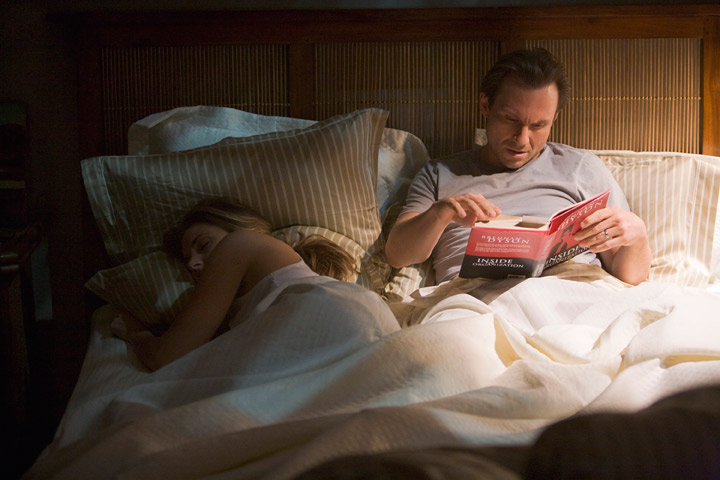TORONTO – When counting sheep or Yoga-class tracks on repeat fail to put you to sleep, there’s another option: pills.

And a new U.S. study suggests from 2005-2010, more adult women (five per cent) used prescription sleep aids than men (3.1 per cent).
The research found about four per cent of Americans aged 20 and over—almost 9 million people—used prescription sleep aids in the last 30 days. Canadian sleep researcher and clinical psychologist Dr. Judith Davidson says the rate of four per cent is about the same in Canada.
Apart from being a woman, those who were non-Hispanic white, educated, or older in age were more likely to take sleep meds, according to the study from the Centers for Disease Control and Prevention’s National Center for Health Statistics (CDC/NCHS).
Director of the Sleep and Alertness Clinic and Sleep Research Laboratory at Toronto Western Hospital’s Dr. Colin Shapiro says the demographic trends would likely be similar in Canada.
He suggested one theory as to why women have more difficulty sleeping has to do with research showing that nuns don’t have much problem with sleep.
And what else don’t nuns have?
Kids.
“Often during child-rearing years, the quality of sleep for women takes a beating – they get numbered with more of the child care,” he explained. “Because they’re so tired in their 30s when raising kids, they don’t notice their sleep is bad. But afterwards, they’re left with the consequences, so in their 40s and 50s the problem of significantly degraded sleep in women is much more apparent.”
Davidson explained women are more likely than men to report insomnia, and therefore more likely to be prescribed medication. She speculated that more educated people might have work involving intense problem solving and mental pressure, which could make insomnia more likely.
“This is just speculation based on the link between mental ‘hyperarousal’ and insomnia,” she emphasized.
Shapiro added that more educated people might be more likely to use the medication as they could be more likely to recognize the problem. They may also be more concerned with getting assistance, particularly if they have a job requiring higher education (Shapiro used the example of a judge who needs to be alert to make decisions).
While the report cites market research data that sleep aid prescriptions have tripled from 1998 to 2006 for American young adults aged 18–24, only two percent of the 20-29 age group used sleeping aids in this study. Prevalence of use increased to 6 per cent for those aged 50-59 and seven per cent for those aged 80 and over.
The study also suggested that “when sleep duration was greater or less than seven hours, the use of sleep aids increased.”
Shapiro said consequences of not getting enough sleep include: poor concentration, poor ability to integrate thoughts, irritability and an increased risk of depression. However, he said the “right” amount of sleep varies.
“Sixteen hours…if you’re a newborn baby,” he said. “The point is different people need different amounts, so to have a single number is a silly idea.”
Shapiro noted that in many countries where people typically sleep for more than seven hours, obesity rates are lower.
“The Americans have the most obesity, then Canada, then Britain, and down the line, Italy. And if you look at how many hours of sleep? Least in America, next least in Canada, next least in Britain, most: Italy,” he explained. “So saying seven hours—that’s what our society is currently accepting; probably we actually need more.”
The CDC study suggested sleep aid use also increased for people who had been diagnosed with a sleep disorder (more than sixteen per cent) or for those who told their doctor they’d had trouble sleeping (13 per cent).
The self-reported data was gathered using the CDC/NCHS’ National Health and Nutrition Examination Survey, which includes interviews in participants’ homes and physical examinations. The study classified hypnotic drugs and antidepressants with sedative function as sleep aids (for a full list of the drugs included, read the “definitions” section here).
Shapiro explained that 20 years ago, hypnotics were grossly overprescribed in both North America and Britain, there were publicized problems with medications commonly used at that time, and doctors reacted “in such a way that they would almost never prescribe sleeping pills.”
He believes we’ve reached a more “middle ground” with greater recognition that sleep-promoting pills are appropriate for certain people, highlighted by the fact that the latest Diagnostic and Statistical Manual of Mental Disorders (DSM-5) has moved away from the idea that sleep problems are a component of another disorder.
“Now it is much more recognized that it’s a problem in its own right, and needs its own attention,” he explained.
There are several types of sleeping pills, but they typically act to reduce the time it takes to fall asleep and increase sleep duration, according to Davidson. However, she said the pills become less effective with long-term use and can cause tolerance and dependence.
While Shapiro believes in the “judicious use” of sleeping pills, he points out other options such as certain foods (e.g. tryptophan in turkey) and behaviour treatments that go beyond good sleep hygiene habits could be used to correct insomnia or problems getting to sleep.
Davidson said research suggests the best treatment is cognitive behavioural therapy for insomnia (CBT-I), which is not yet easily available to Canadians.


Comments